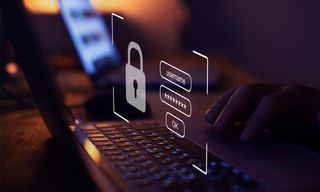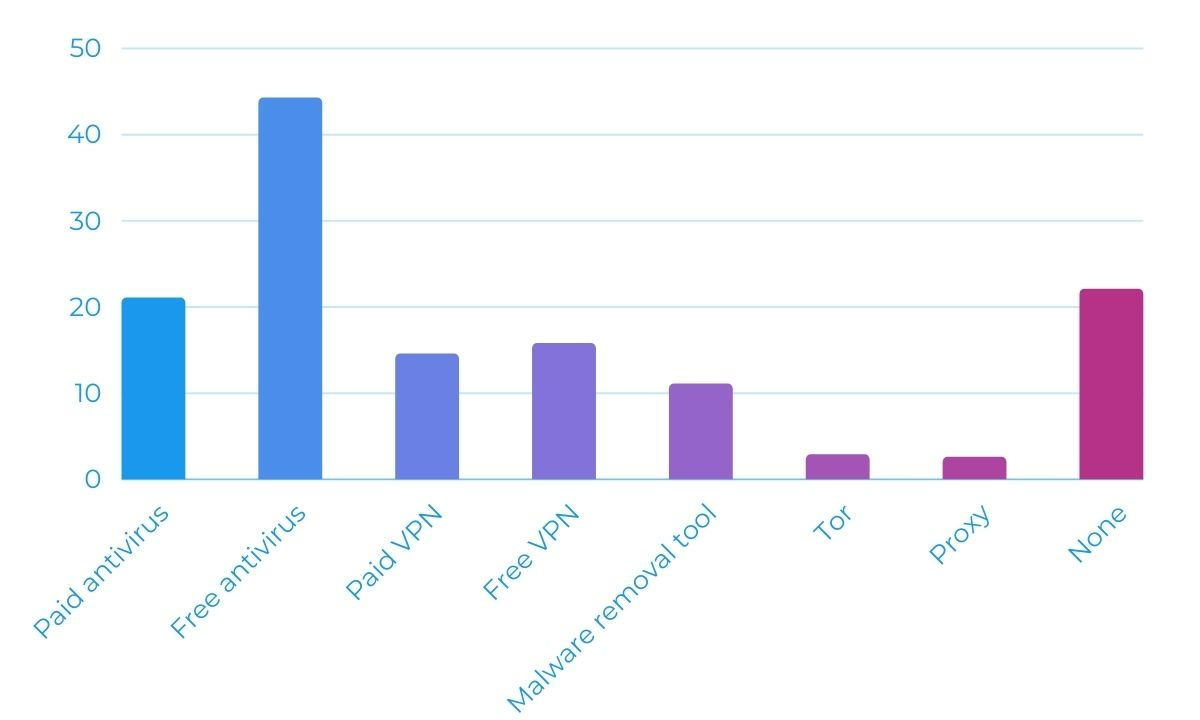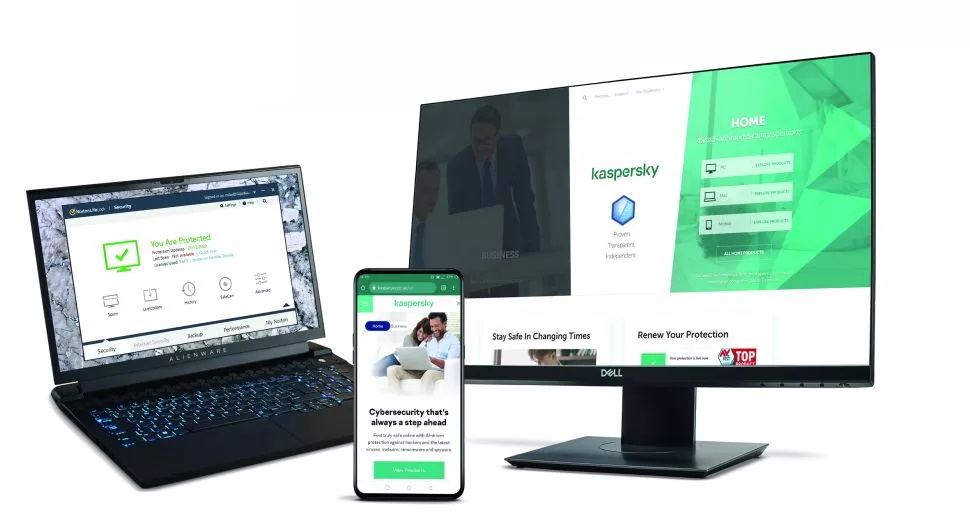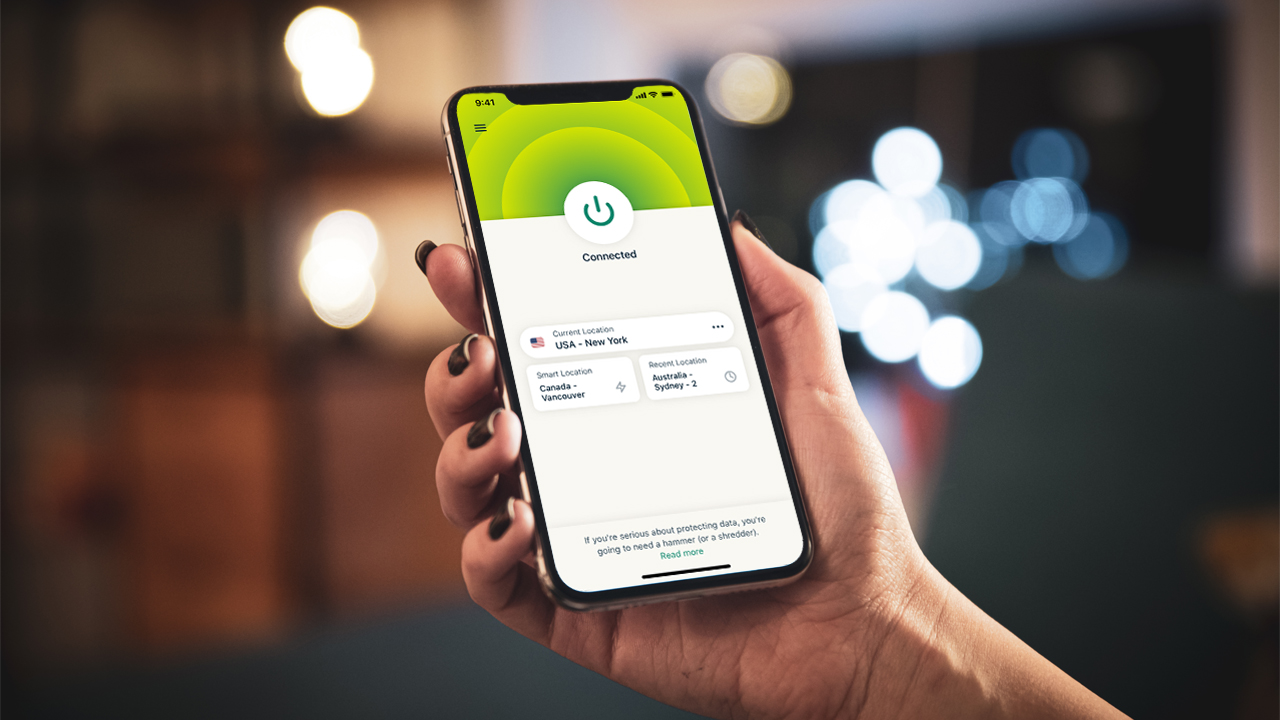1 in 5 people aren't protecting themselves against cyber attacks — are you one of them?
1 in 5 people aren't protecting themselves against cyber attacks — are y'all one of them?

Protecting ourselves from online dangers is probably more of import than ever, equally we spend an ever-increasing amount of time on our phones and computers.
However, a recent survey of 1,000 randomly-selected individuals in the UK and US we conducted with the existent-fourth dimension poll provider OnePulse revealed some shocking statistics about people's cybersecurity habits — or lack of them.
The research found that 2-thirds of the respondents employ dedicated antivirus software, exist it free or paid, while just under a third use a VPN service.
The really striking figure, though, is that over 20% of respondents said they used no cybersecurity tools at all.
That means more than than one in five people exit themselves broad open up to whatsoever and all the risks online without, any means of third-party specialist online protection whatsoever.
- four reasons why a VPN is the ultimate bargain hunter's tool
- Check out our listing of common mistakes to avoid when using a VPN
- More: Is OpenVPN yet fit for purpose?
The risks are real
Our reliance on the web offers criminals and malicious individuals increased telescopic to target us, and the attacks we face at present are far slicker and harder to find.
"It's piece of cake to think cybersecurity issues are mostly problems for someone else," says in-house Security Specialist Mike Williams. "Most people have the mindset of 'we're not doing anything of import, no-1's going to target united states, nosotros're really careful online, iPhones don't get viruses anyway'.
"But the reality is, any their situation, anyone can run across security problems.
"Security is well-nigh much more than crossing your fingers and making a wish. In that location are plenty of dangers out there, but protecting yourself is easy, and in many cases yous can do it for free."
While we might still get dubious emails from long-lost millionaire relatives from fourth dimension-to-time, we're now much more likely to see phishing and email scams impersonate those closer to home — peculiarly our employers. That's not all you demand to worry about, though.

If you lot similar to become out of the business firm and get working in a coffee shop, there are too existent issues posed by using public Wi-Fi. If the connection isn't secured (and they frequently aren't), then anyone with the right tech can meet exactly what you're upward to.
Downloading programs and files can as well exist a risky business. We always recommend downloading software directly from the provider's website rather than from a separate repository online, merely sometimes that isn't possible. If you do accept to download anything from a site you lot don't fully trust, taking precautions is essential.
For those who appoint in torrenting, the take chances is even greater. Not only practise you have to navigate yourself around illegal downloads, simply sharing P2P opens you up to anyone else downloading or seeding the same files.

Antivirus as a first line of defense
It'south truthful that built-in protection has come a long way in contempo years, merely in that location's still no substitute for dedicated antivirus software. Essentially, antivirus software is active all the time, and monitors what connections your device is making. Whatever files downloaded are scanned, and ensured to be safe.
While this doesn't give you carte blanche to download annihilation and everything without circumspection, it does requite you peace of mind that if you do unwittingly betrayal yourself to malware, your antivirus should discover this and stop information technology from harming your device.
Some antivirus programs can also protect you from dodgy websites by blocking links and alerting you to dangers when browsing. Some people find this intrusive and it can be turned off, but having the option is good.
If you lot're using a Windows or Mac PC, information technology'southward a good thought to have an antivirus active whether y'all're a casual browser or power user. Mobile devices are less likely to suffer from malware infections, but it'south still worth taking precautions — especially with an Android antivirus app.
Most basic plans with the big antivirus players only support 1 device, but upgrading to encompass multiple devices with an internet security suite aren't too expensive.
It'southward articulate that people understand the importance of antivirus tools. With over 65% of those surveyed proverb that they're using one (exist it free or paid), the bulk of people are aware of the risks posed online — that can simply be a good affair.
And, what's more, Microsoft Defender comes bundled with every installation of Windows, and is at present much more robust than it used to be. This ways Windows users benefit from adept protection out the box often without realizing it.
Apple's built-in offering isn't quite so robust as Windows', simply the trade-off is that there's less malware out in that location that targets Macs. Withal, in both cases, for total protection it's often advised to implement a premium third-party solution for maximum protection.

Often confused with antivirus software — although less so now they're becoming more mainstream — secure VPNs protect you in a different way online.
By using a VPN, you encrypt and obscure all of your Internet traffic from anyone who's watching. At dwelling, that's generally your Net Service Provider (ISP). For many, stopping your Internet access provider from snooping on your activity is reason enough to invest in a VPN — equally well, of class, as accessing geo-blocked streaming content and fugitive censorship.
Notwithstanding, VPNs really come into their own when yous're out and about, using public Wi-Fi networks. Found just almost everywhere from trains to coffee shops, using a VPN on public Wi-Fi is a must because when y'all're connected, your traffic can be intercepted. If you're using a cyberbanking app or inputting your card details, it'south best to err on the side of caution and take measures to protect your data.
Compared to antivirus usage, VPNs are nevertheless somewhat niche with only effectually 30% of those surveyed using them. While that makes sense to a degree — not everyone is concerned about staying anonymous or connects to public Wi-Fi — we still believe that having admission to the correct tools when yous do need them is essential preventative protection.
The answer won't surprise you — to stay safety online, we recommend using equally many forms of protection as you can. And then that means antivirus, a quality VPN, and regular checks with things similar malware clean up tools.
All of these can be found for costless, and while a complimentary VPN won't offering everything a paid-for service might, if you're just looking for quick protection they do the chore — just make sure you pick a reputable provider!
Otherwise, the most valuable tool to use is your mutual sense, no matter what protections you accept in place. If a link looks foreign and your browser warns you that it's dangerous, leave rather than powering through to a potentially malware-infested site. You'll save yourself a lot of hassle in the procedure.
What did we ask the survey respondents?
OnePulse is a gamified survey platform that sends short surveys to its users, and returns the answers of the get-go 1,000 respondents. Those respondents then receive a small payout of a few cents.
Nosotros asked the question: 'What cybersecurity software practice you use to stay safer and more than private online?'
We offered the eight answers below, and users could select all that applied. The proportions can exist found in the graph visualisation of the results near the tiptop of the page.
- Antivirus (free)
- Antivirus (paid-for)
- VPN (free)
- VPN (paid-for)
- Malware protection tool
- Tor
- Proxy
- None
- More than similar this: Find today's best inexpensive VPNs
Source: https://www.tomsguide.com/features/1-in-5-people-arent-protecting-themselves-against-cyber-attacks-are-you-one-of-them
Posted by: sandlerfromente1974.blogspot.com


0 Response to "1 in 5 people aren't protecting themselves against cyber attacks — are you one of them?"
Post a Comment